Nova Scotia mass shooting inquiry heavily criticises police response
- Published
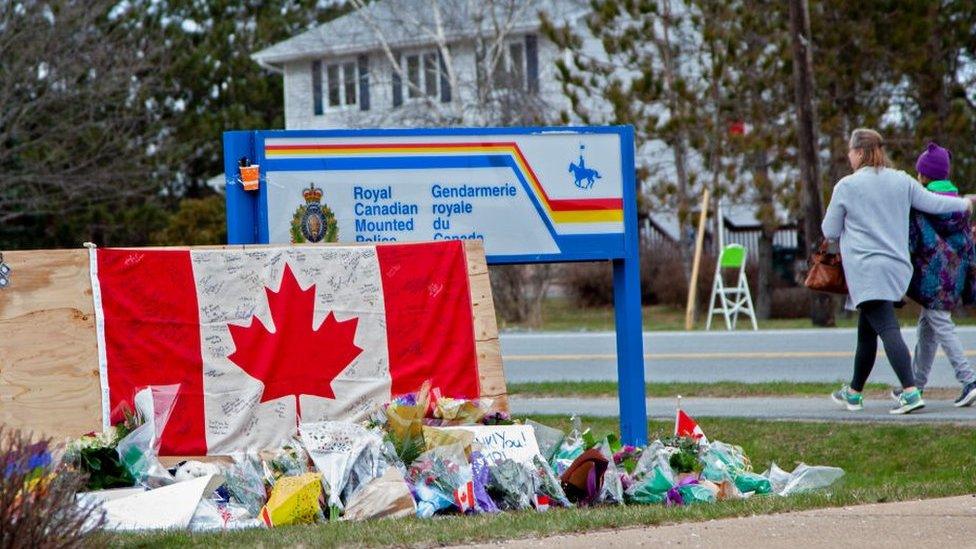
Twenty-two people died in April 2020 in Canada's worst mass shooting in modern history
Police missed multiple "red flags" and failed to respond quickly to the worst mass shooting in Canada's history, a report into the response has found.
A gunman posing as a police officer killed 22 people in Nova Scotia over a two-day period in April 2020.
An inquiry into the shooting heavily criticised the police response, and said that lives could have been saved.
It concluded that Canada's federal police force needs a significant overhaul in the aftermath.
"Our recommendations call for transformative change, they call for collaboration, they call for leadership," said Michael MacDonald, chair of the Mass Casualty Commission charged with overseeing the independent inquiry into the shooting.
The 3,000-page document outlines 130 recommendations that call for a fundamental change to the Royal Canadian Mounted Police (RCMP) to prevent a similar mass-casualty event from occurring in the future.
It criticises the RCMP for failing to address previous behaviour of the gunman, who was revealed to have been abusing his long-term partner for years.
"Many red flags about [the gunman's] violent and illegal behaviour were known by a broad range of people, and have been brought to the attention of police and others over a number of years." Mr MacDonald said.
It also called out the police for their lack of preparedness for a mass-casualty event, their initial response to the shooting and the police's communication with the public during and after the shooting.
The report added that police discounted eyewitnesses who said the gunman was posing as an RCMP officer as the shooting unfolded - a fact that was only communicated to the public 12 hours after the shooting began - and that they "seriously understated the threat" presented by the gunman to the public.
The commissioners said it is critical that the RCMP implement their recommendations.
"Canadian society is at a critical juncture with respect to the future of policing," commissioner Leanne Fitch said.
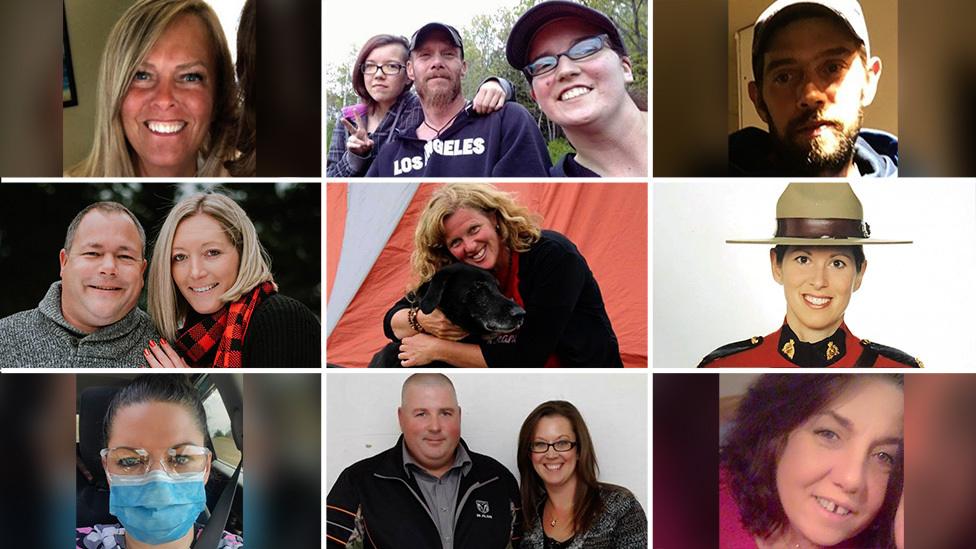
Victims of the Canada's largest mass shooting
How the Nova Scotia shooting unfolded
Police first responded to the shooting around 10 p.m. local time on 18 April, 2020 at a quiet cul-de-sac in the small, seaside community of Portapique.
The gunman, Gabriel Wortman, first attacked his partner, Lisa Banfield, who managed to escape.
He went on to kill 13 people in the area and burn down several houses, including his own.
Wortman, who was driving a replica of an RCMP cruiser, managed to remain undetected overnight by police. The next day, he killed nine more people, including a pregnant woman and an RCMP officer.
The rampage ended when the gunman was fatally shot by two RCMP officers at a gas station located more than 90km south of where the shooting began. Cst Heidi Stevenson with the RCMP died during a confrontation with the gunman.
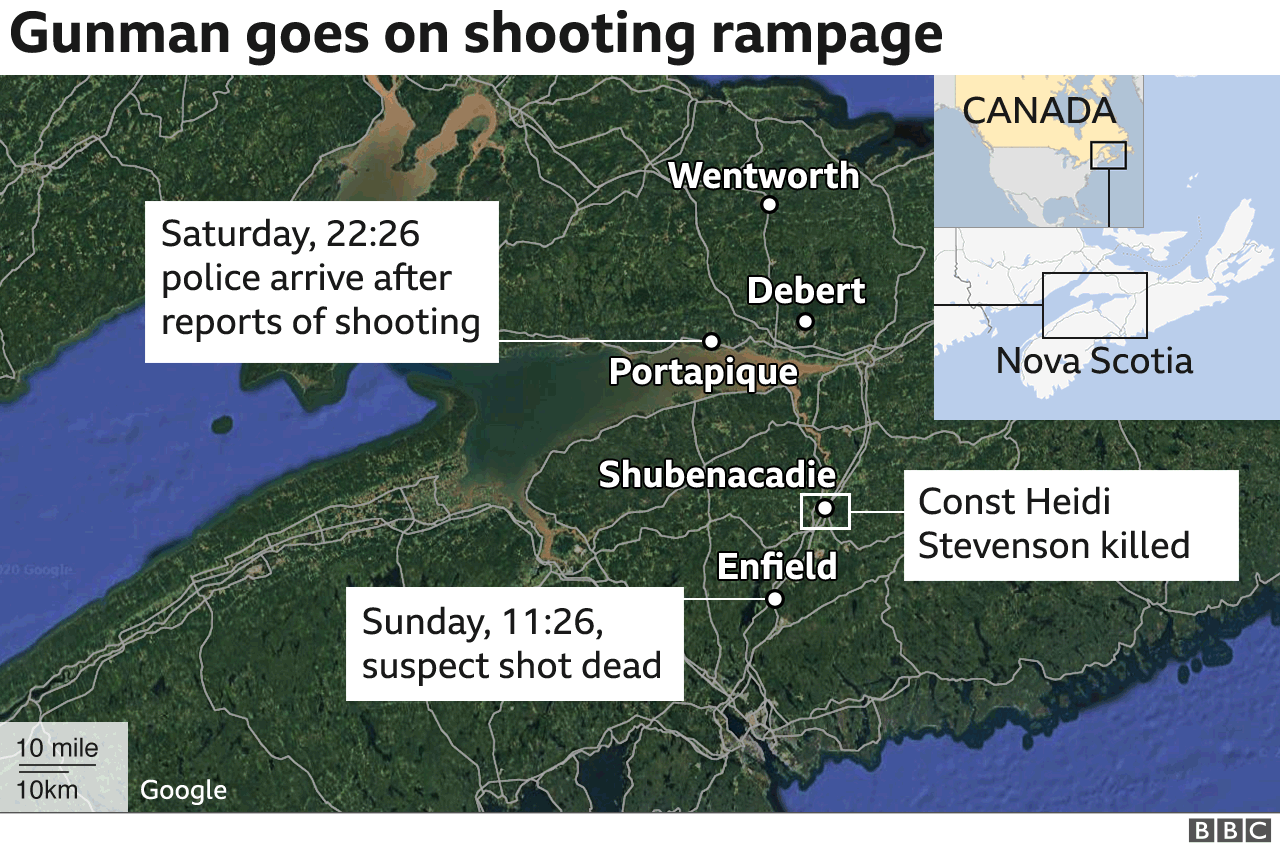
What the inquiry into the shooting heard
The inquiry heard from more than 200 witnesses between February and September 2022, including police officers, survivors and families of victims.
Testimony revealed that the RCMP were notified the gunman had a fake police car during the first 911 call at around 10:00 p.m. local time. Despite this, police only warned the public about the replica cruiser 12 hours later on Twitter.
Families of some of the victims said the police car caught their loved ones unaware.
The initial scene of the rampage was also described as a "warzone" by the first responding officers, who said they were unsure how or what they were heading into as they navigated pitch-dark woods and chased the sound of gunfire.
The officers said they were out there alone for 90 minutes, as the RCMP was unable to track them on site with GPS and there was concern police could accidently shoot each other.
In that time, Wortman managed to escape using a private dirt track with access to a nearby highway.
The inquiry also heard from Ms Banfield, the gunman's former partner, who testified that she had been abused by him for many years. The report added that police need to better address domestic violence and its victims to prevent a similar tragedy from occurring.
"(The gunman's) pattern and escalation of violence could and should have been addressed," the report said.
The head of the RCMP at the time, commissioner Brenda Lucki, also testified before the inquiry, and acknowledged that changes need to be made in light of how her police force responded to the shooting.
"I can't undo the past, but I surely can change the future," Ms Lucki said. She retired from her post in March.
Related topics
- Published17 July 2020
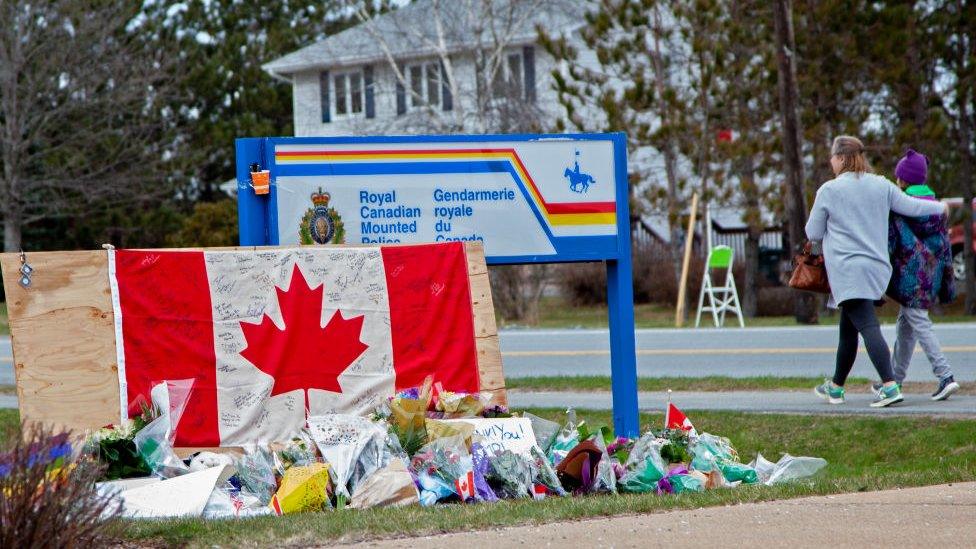
- Published20 October 2022
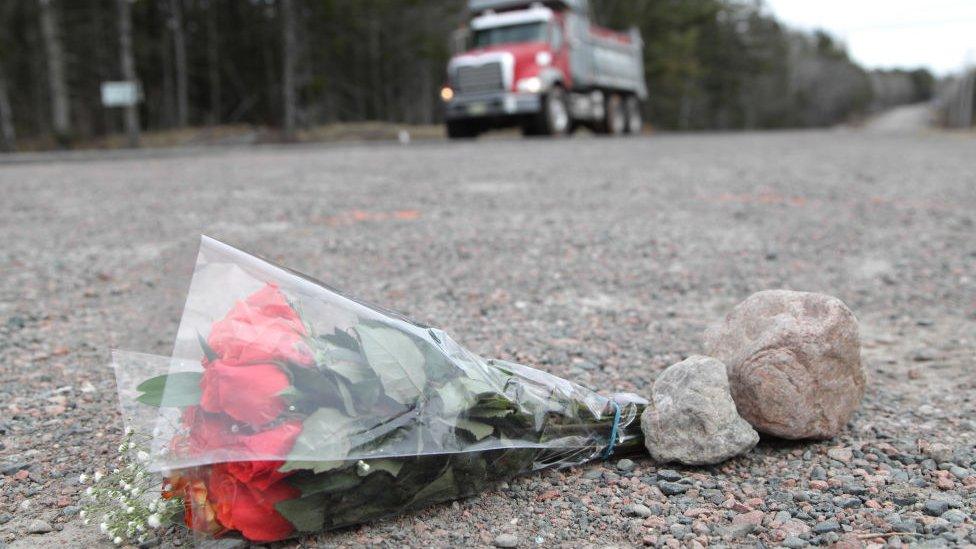
- Published15 July 2022
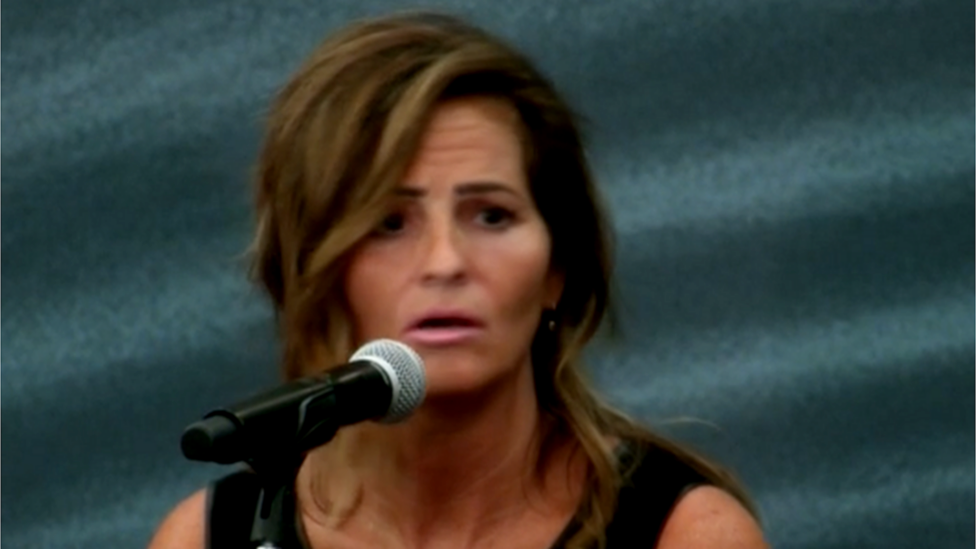
- Published15 May 2022
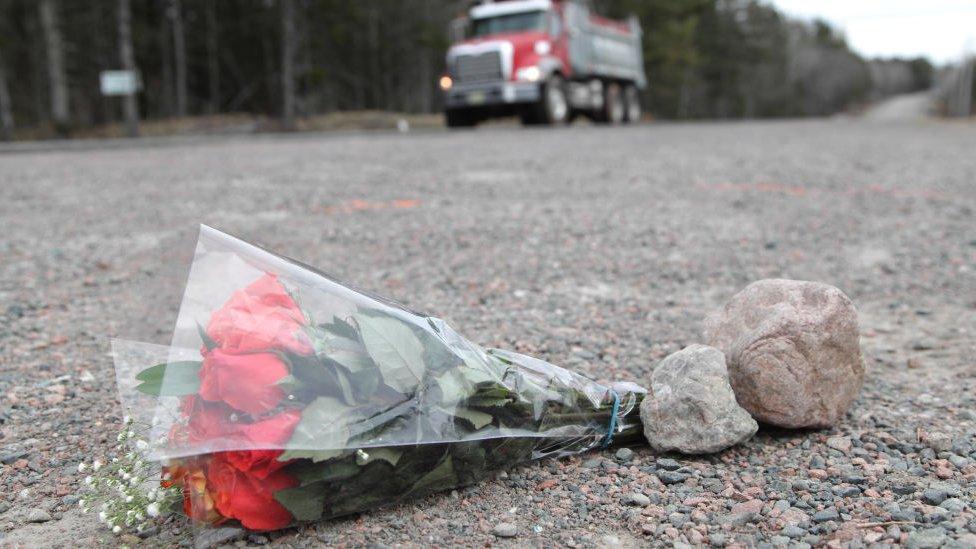
- Published24 July 2020
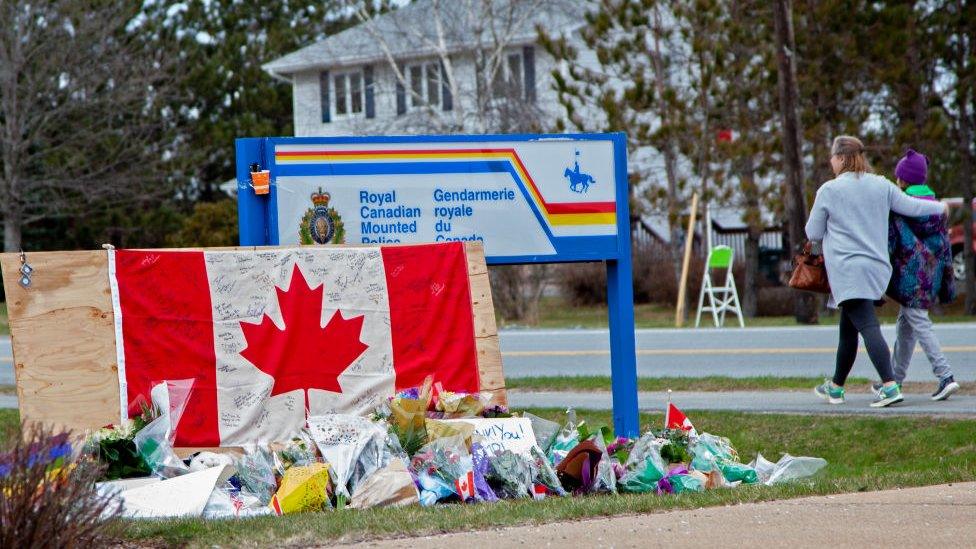
- Published23 July 2020
